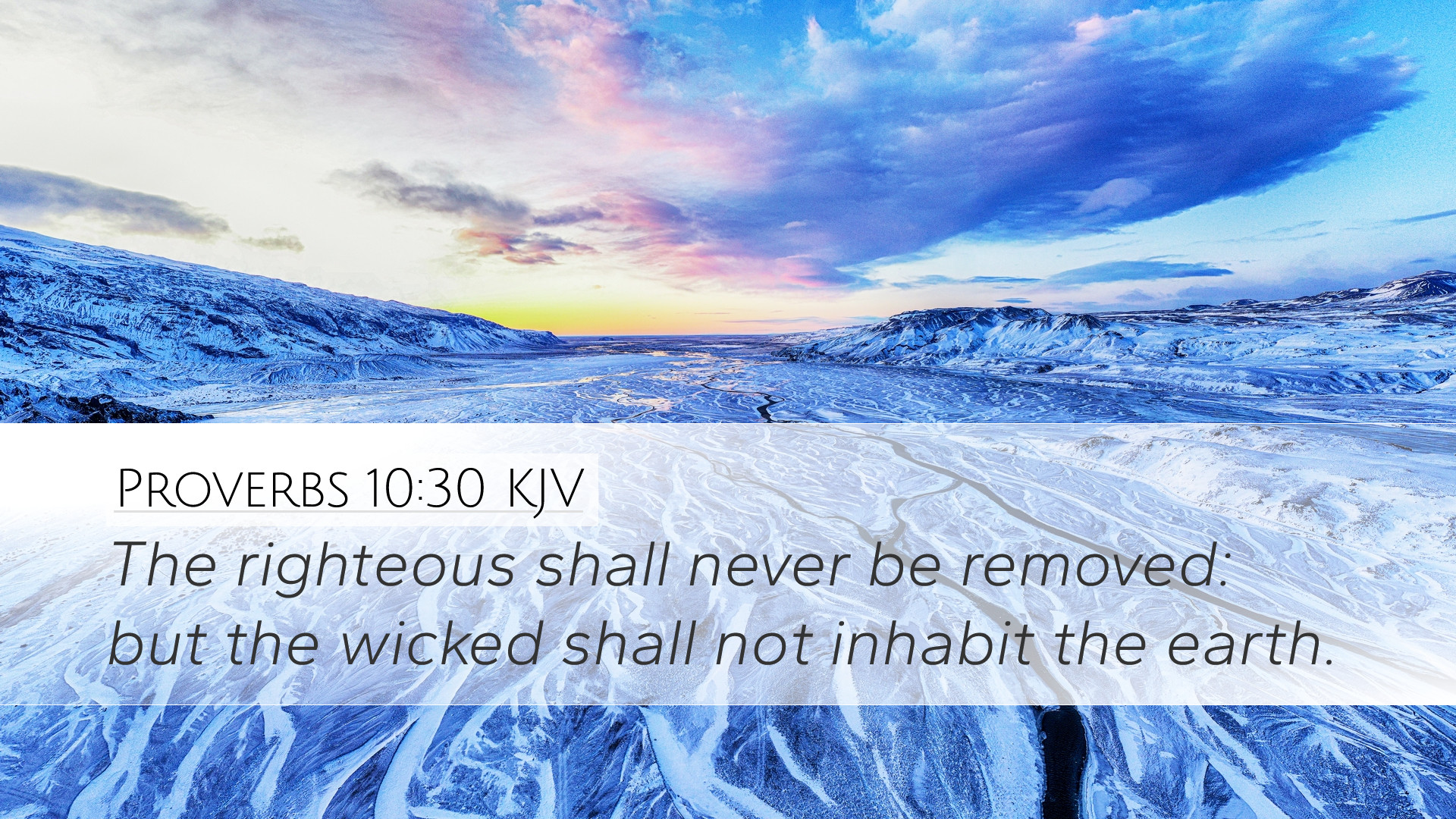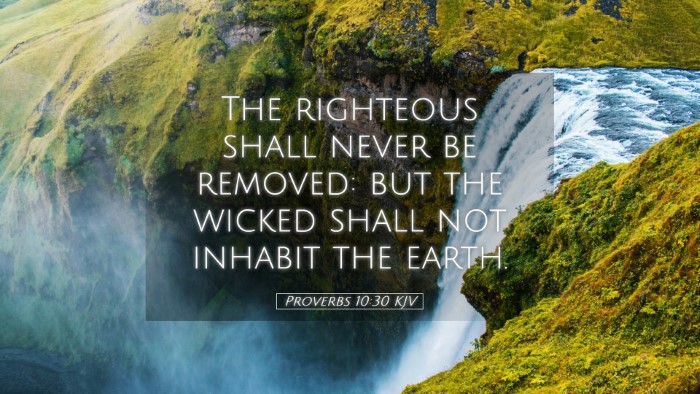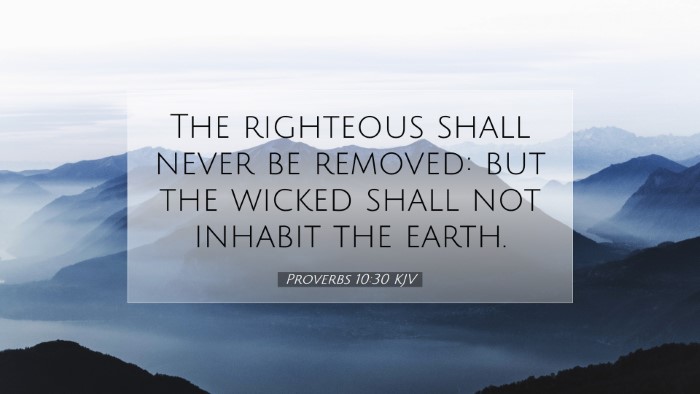Commentary on Proverbs 10:30
Verse: "The righteous shall never be removed: but the wicked shall not inhabit the earth." (Proverbs 10:30, KJV)
Introduction
This verse serves as a profound declaration regarding the enduring nature of the righteous in contrast to the precarious existence of the wicked. It plays an essential role in the thematic tapestry of Proverbs, which contrasts wisdom with folly, righteousness with wickedness, and the eternal with the temporal.
Commentary Insights
Matthew Henry's Commentary
Matthew Henry elucidates this verse by emphasizing the stability and permanence of the righteous. He notes that the phrase "never be removed" indicates not only their physical presence on earth but also their spiritual standing before God. The righteous are likened to a firm foundation, unshakeable and enduring, and through their lives, they will leave a lasting legacy. In contrast, Henry warns that the wicked, while they may momentarily prosper, lack true security and will ultimately face judgment.
Albert Barnes' Notes
Albert Barnes elaborates on the implications of the term "righteous." According to Barnes, it refers to individuals characterized by their adherence to God's law, emphasizing the moral and ethical dimensions of righteousness. He interprets the latter part of the verse to mean that while the wicked may seem to flourish, their end is disastrous. Barnes highlights the certainty of divine justice, reminding readers that the fate of the wicked stands in stark contrast to the eternal existence promised to the righteous.
Adam Clarke's Commentary
Adam Clarke offers an insightful interpretation of the juxtaposition between the righteous and the wicked. He notes that the wicked, despite their apparent success, are transient figures who lack the fundamental peace provided by righteousness. Clarke points out that the "earth" symbolizes the realm of existence where both groups currently reside, yet the righteous possess a hope that transcends earthly life. Clarke underscores that the righteous are those who are steadfast in their faith, anchored by their relationship with the divine.
Theological Implications
The verse holds significant theological implications, particularly concerning the nature of God’s justice and the moral order of the universe. It serves as a reminder of the ultimate triumph of righteousness and the folly of sin. From a biblical worldview, the promise of permanence for the righteous is anchored in the nature of God, who is faithful and just.
Practical Applications
- For Pastors: The assurance of God's sovereignty can serve as a source of encouragement during difficult times, reminding congregants of the security they hold in Christ.
- For Students: Engaging deeply with the concepts of righteousness can help students to make ethical decisions aligned with biblical principles.
- For Theologians: This verse can provoke thoughtful discourse on eschatology (the study of end times) and the nature of God’s justice in both the present and future realities.
- For Bible Scholars: Investigating the linguistic and cultural contexts of the text can unveil deeper meanings and its implications in the broader narrative of Scripture.
Conclusion
In Proverbs 10:30, we find a powerful affirmation of the stability of righteousness contrasted with the transient nature of wickedness. As believers, it urges us to aspire towards a life of integrity, reflecting on the enduring power of righteousness that comes from a deep relationship with our Creator. Through reflection on this passage and the insights from eminent theologians and scholars, we are encouraged to cultivate a deeper understanding of God’s promises, His justice, and the transformative power of living a life aligned with His will.


